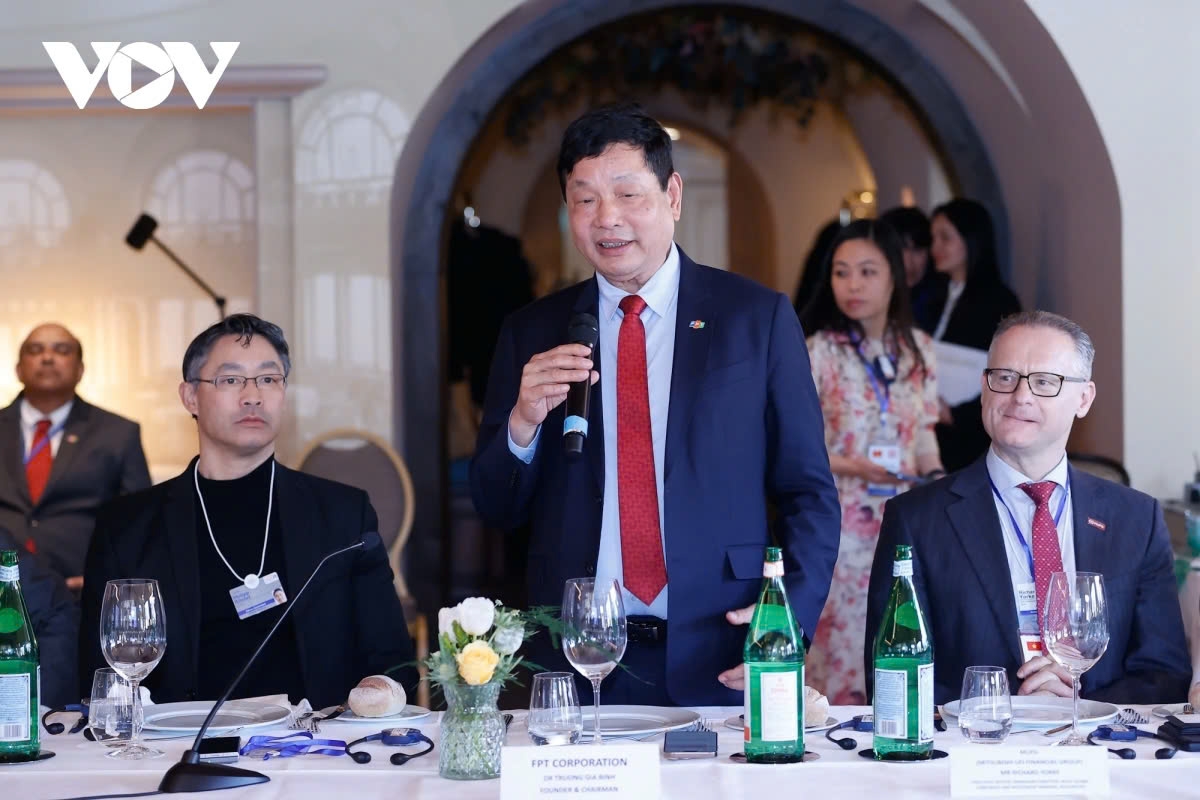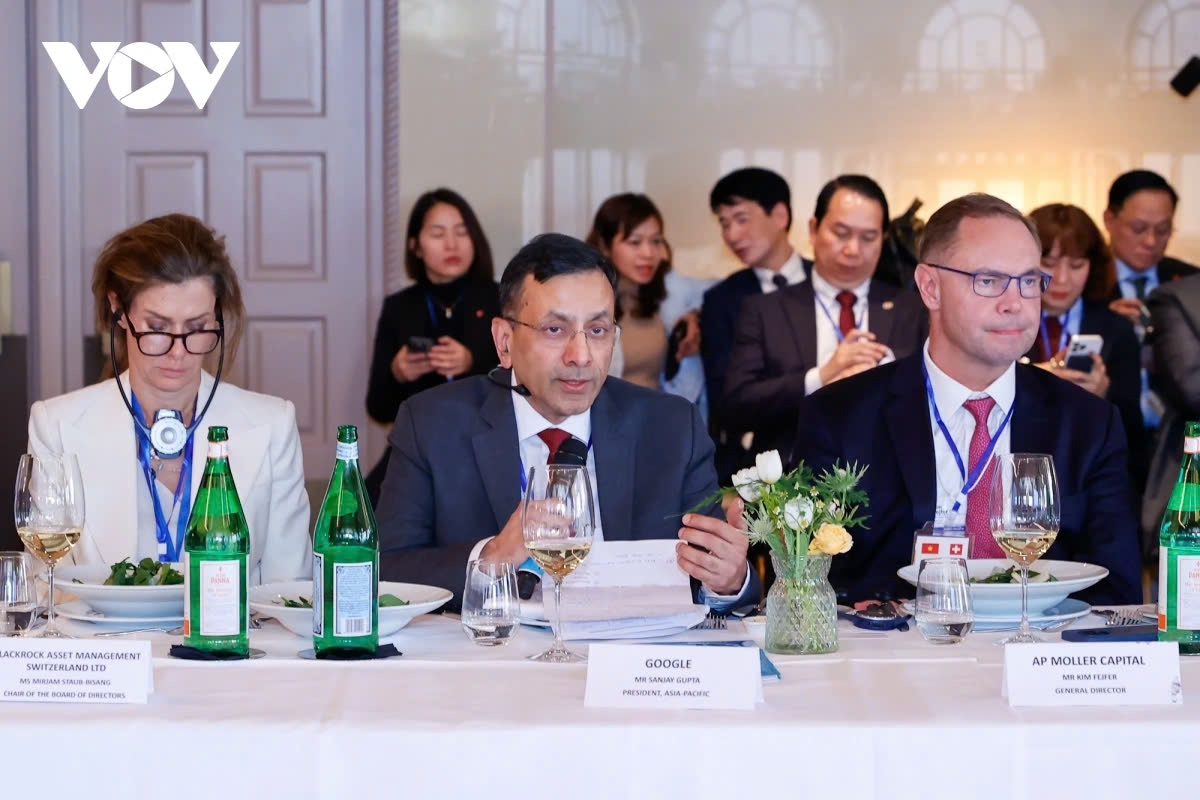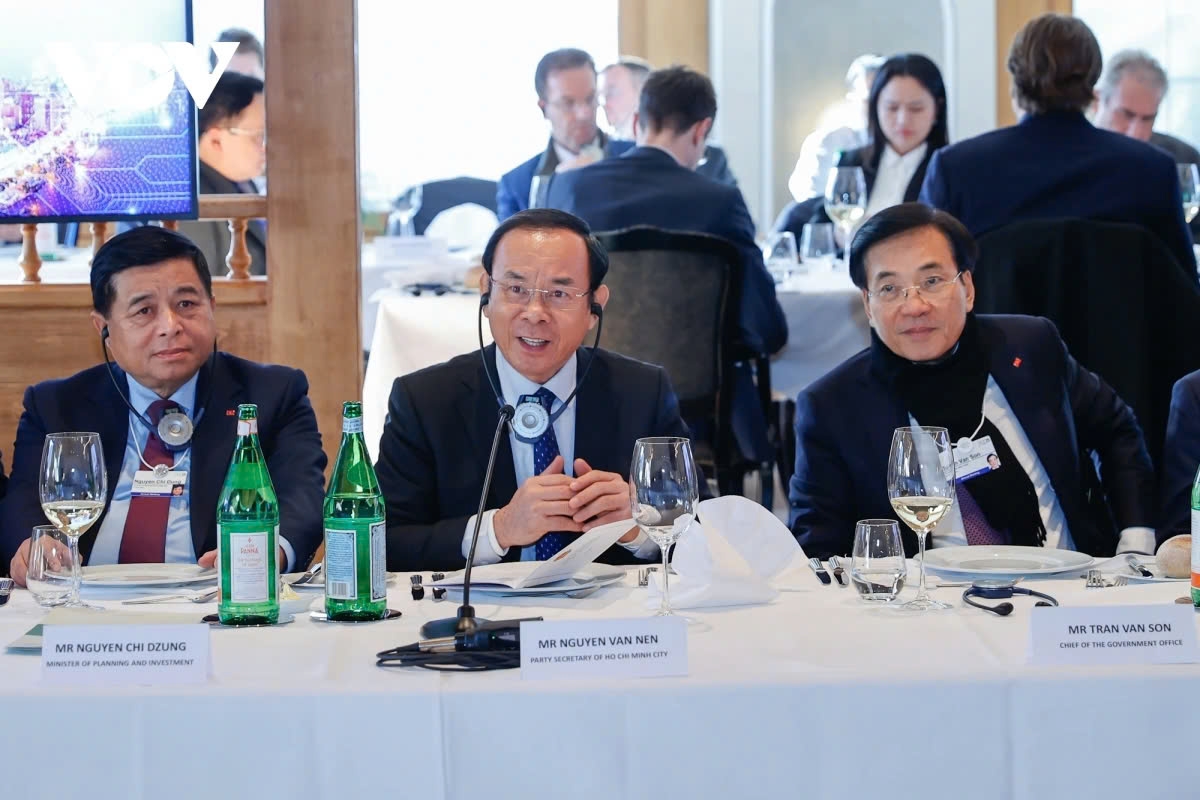Vietnam boasts potential to position itself as regional and global tech hub
VOV.VN - Vietnam has advantages to become a tech hub in ASEAN and globally, heard a seminar held in Davos, Switzerland, on January 21 on the sidelines of the 55th Annual meeting of the World Economic Forum (WEF).
The gathering attracted the participation of Vietnamese officials, representatives from major Vietnamese corporations, alongside representatives from global giants such as Google, City Group, Bitcoin Suisse, SEB Bank, Schneider Electric, Qualcomm, Visa, Ericsson, Hyundai Motor, among others.

In his keynote address, Truong Gia Binh, chairman of Vietnam’s leading tech giant FPT, highlighted Vietnam’s shift from regulatory management to governance facilitation, with a focus on outcomes over processes. He emphasized that Vietnam is striving for double-digit growth in the near future, driven by science-technology, and innovation, particularly in fields such as artificial intelligence (AI), digital transformation, semiconductors, and big data.
The country’s tech industry generates annual revenue of US$2 billion, supported by a workforce of about 1 million technology professionals and prominent domestic tech firms such as Viettel, VNPT, and FPT.
He expressed Vietnam’s desire to cooperate with global partners to soar in the smart era.
The participants delved into Vietnam’s potential in high-tech investment, FDI attraction, and its competitive advantages. They also made recommendations to further enhance the country’s appeal as an investment destination.
Executives from global firms like Google, Schneider Electric, and A.P. Moller Capital lauded Vietnam’s strategic position and its potential to become a regional and global tech hub. They noted opportunities not only in science and technology but also in infrastructure, logistics, and health care.
The executives encouraged Vietnam to continue improving its institutional framework, developing hard and soft infrastructure, and offering incentives, especially in tax, fees, land policies, and foreign ownership regulations.

Minister of Planning and Investment Nguyen Chi Dung responded to these suggestions by outlining reforms to make Vietnam a safer, more efficient, and competitive investment destination. He highlighted a post-audit mechanism that allows foreign investors to launch projects immediately upon registration, eliminating the 2-3 year waiting period previously required for investment approvals and environmental, fire safety, and other assessments. He also added that Vietnam is reviewing foreign investment caps in key areas like airports and seaports to attract additional funding for future infrastructure development.
On international financial centers, the Minister revealed that Vietnam’s National Assembly has approved plans to establish centers in Ho Chi Minh City and Da Nang. He invited international partners to contribute policy advice and share experiences to ensure the success of these projects.
On behalf of the Vietnamese Prime Minister, Nguyen Van Nen, Party secretary of Ho Chi Minh City, expressed gratitude to the participants and investors who have chosen Vietnam as their destination. He emphasized that high-tech development is not only the key to enhancing productivity, quality, and competitiveness but also to elevating Vietnam into a modern industrialized nation and building a knowledge economy.
Acknowledging the international community’s positive evaluation of Vietnam, Nen highlighted the presence of global tech leaders such as Samsung, Intel, Nvidia, Google, and Meta, as well as the rapid growth of domestic tech firms like Viettel, VNPT, FPT, and CMC within the country’s innovation ecosystem.

He underlined Vietnam’s stable political environment, sustainable economic growth, skilled workforce, upgraded infrastructure, and vibrant industry ecosystem as key factors that make the country an attractive destination for high-tech investment.
In the new era, he said, Vietnam aims for sustainable development with science and technology at its core, driven by innovation and digital transformation. The government prioritizes selective investments in high-tech projects, including semiconductors, artificial intelligence, research and development, renewable energy, green hydrogen, and integrated infrastructure.
The senior official assured investors of Vietnam’s unwavering support, including special incentives for high-tech investment, streamlined investment procedures, and the development of high-quality human resources. He called on businesses to support Vietnam in exploring new opportunities, expanding investment cooperation, and implementing innovative solutions for mutual benefit.
“We commit to listening to and understanding, sharing visions and actions, cooperating for mutual success, and celebrating shared achievements with pride and joy,” he concluded.



